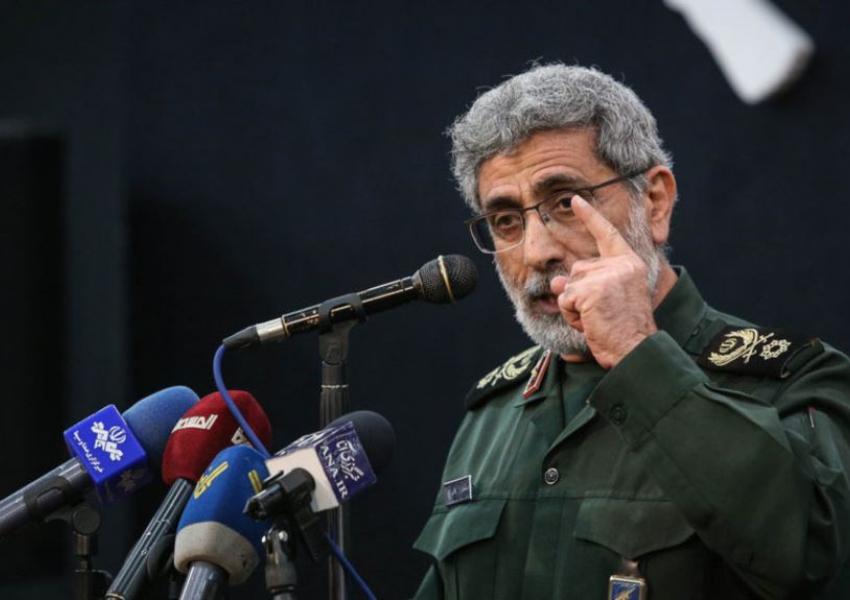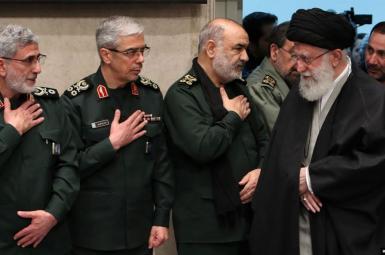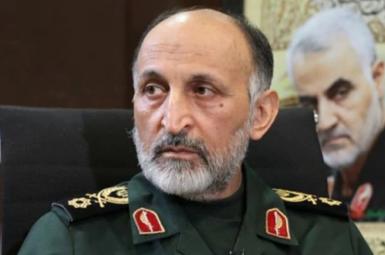
Soleimani's Successor Threatens American Officials With Salman Rushdie's Fate
The commander of Iran’s Qods (Quds) Force, Esmail Ghaani has threatened American officials in a closed-door session of the Iranian parliament convened on the approach of the first anniversary of the United States’ killing his predecessor, Major-General Qasem Soleimani. Later,in an open session, parliament initiated a bill for “reciprocal measures” against the US for killing Soleimani.
Ghaani told lawmakers on Wednesday [December 30] that those responsible for the assassination, which was claimed by US President Donald Trump, “should learn how to live secretly like Salman Rushdie,” Jahan News reported.
In 1989 Iran’s leader Ruhollah Khomeini issued a fatwa, or religious ruling, calling for the death of British-Indian author Salman Rushdie for blasphemy in his 1988 book, The Satanic Verses. Rushdie lived in secrecy and under protection for many years, and his public appearances remain limited.
As commander of the Islamic Revolution Guards Corps (IRGC) Qods Force, Soleimani supervised Iran’s regional network of state and non-state allies. He was heavily involved both in the Syrian war and in the fight against the Islamic State group in Iraq.
Journalists were not present at Wednesday’s parliament session and Iranian media reported only snippets of what transpired. Fars news agency quoted a member of parliament, Ahmad Alireza Baygi, that Ghaani had reported on “latest developments in the region…[and] on the makeup and arrangement of resistance forces [Iran’s regional allies and proxies] in the region.”
Baygi quoted Ghaani as promising that “with the measures on the agenda of the resistance forces,” the decline of American forces was imminent. Trump is currently reducing US troop numbers from 3,500 to 2,500 in Iraq and from 4,500 to 2,500 in Afghanistan, down respectively from 7,500 and 12,000 in 2018. The US has around 180,000 troops deployed overseas.
With the first anniversary of Soleimani’s death days away, the media and officials in Iran are portraying Soleimani as an Iranian hero and international Islamic figure. President Hassan Rouhani spoke at length about the general during his weekly cabinet meeting on Wednesday, praising him for his activities since US forces invaded Afghanistan in 2001 following the September 11 Al-Qaeda attacks on New York and Washington. Rouhani reiterated that the expulsion of US forces from the Middle East would be “final revenge” for Soleimani’s death.
Iranian officials have often spoken of expelling US forces as a measure of revenge. They have signaled caution during the remaining weeks of Trump’s presidency.
Tensions are running high in Iraq in the run-up to the anniversary of the January 3 killings, when four Iraqis - including Abu Mahdi al-Muhandis, the leader of a prominent militia - died alongside Soleimani and three other Iranians. Feelings have been exacerbated by Trump’s December 23 pardon of four Blackwater military contractors convicted of killing 14 Iraqi civilians in Baghdad in 2007.
Hassan Nasrallah, leader of Lebanese Hezbollah, on Sunday repeated earlier remarks that his group and other Iranian allies should be careful in the last few weeks of Trump’s administration, calling the defeated president “angry” and “crazy.”








